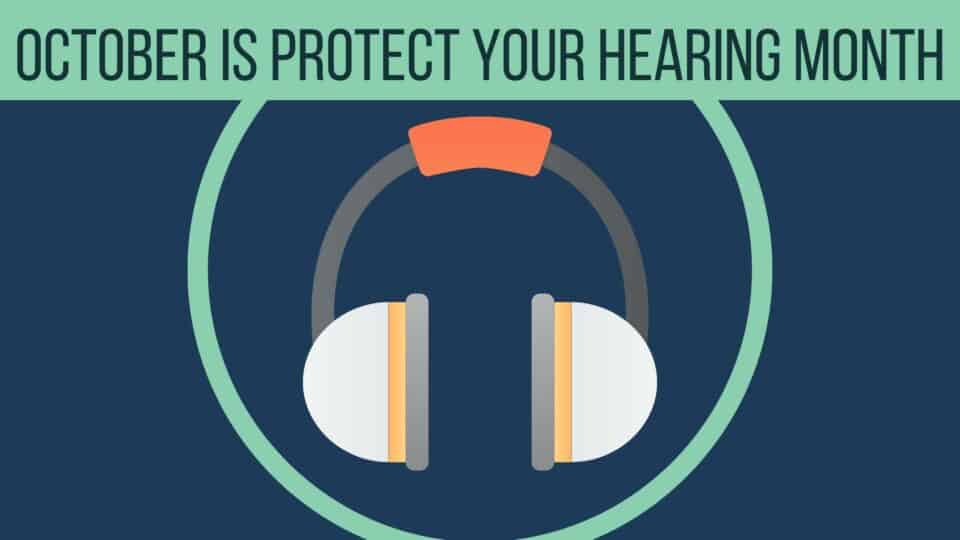How loud is the volume turned up in your life? Many of us surround ourselves with noise every day without understanding the potential consequences our actions can have. While there’s nothing wrong with listening to music, watching a movie or playing a video game, it is critical to know that loud sound exposure can be catastrophic to our hearing, and how to listen at healthy sound levels. This October is Protect Your Hearing Month – let’s take a look at how noise is related to hearing loss.
Why Worry About Loud Noise?
In today’s busy world, many people feel like loud noise is “the least of their problems”. Unfortunately, the role loud noise plays in our life and health can be quite significant. First, loud noise is directly related to permanent hearing loss. Noise damages our hearing by pushing our sensory cells in the inner ear beyond their breaking point. These cells, essential for picking up sound wave vibrations in the air, have no way to repair themselves once they are damaged, thus creating a permanent injury to our hearing when they are damaged. When a number of these cells are out of commission, it manifests in the auditory system as significant hearing loss.
Hearing damage often goes undetected when it is happening. Dangerous noise levels can permanently impact your hearing without causing physical pain. While signs of hearing damage, like a incidence of tinnitus -a ringing in the ears- may occur, the fading of tinnitus does not represent hearing “recovering” from loud noise. Once permanent damage has occurred in the auditory system it remains, in fact, permanent, contributing to hearing issues.
Hearing loss is often dismissed by people as “not that bad”, however all degrees of hearing loss mean significant changes to your everyday life and heightened potential health risks. Hearing loss limits how we communicate and react to the world around us. Untreated hearing loss makes it harder to interact with others, keep up with lessons, meetings and conversations and even has been shown to reduce earning power. Hearing loss can exacerbate quality of life deterioration by encouraging anxiety, social isolation and depression. Hearing issues also place extra stress on our cognitive skills and thereby increase a person’s risk of falling accidents and dementia.
How Loud Is Too Loud?
You need to listen to music today thinking about how you will listen to it in the future. In essence, any sound over 85 decibels (dB) has the potential to damage your hearing. At 85 dB, about as loud as a factory floor, permanent hearing damage can occur after 8 hours of exposure. However, the louder a sound is, the shorter the “safe” period for listening to it. At 105 dB, the average volume of a rock concert, hearing damage occurs in under ten minutes. The threshold of 120 dB is where hearing damage occurs instantaneously – there is no “safe” exposure at this volume – about the sound of a gunshot. Hearing needs to be protected around any event where very loud sounds may be present.
If you’ve never paid attention to the noise levels around you, now is a great time to start. Almost any cell phone can be used as a decibel meter with the use of a sound monitoring app. Use these apps as tools to survey the sounds you are exposed to in your everyday life. Another important culprit in noise-related hearing loss is listening through headphones or earbuds at dangerously loud levels. Channeling sound directly into the ear canal, it can be tricky to keep headphone audio in the safe range. A good rule to stick to is to listen through headphones at the minimum discernable volume. It is also important to take breaks from loud noise where your hearing can recoup from exposure. For stereo and home theater equipment, always keep volume levels in the lower third of the volume range.
When intense environmental noise is present ear muffs and earplugs are protective layers that can dampen incoming sound and protect your hearing. It is important to wear protective gear correctly and to use it whenever it is needed. Make a habit of protecting your hearing and you can preserve your hearing health! Contact us today to learn more.

